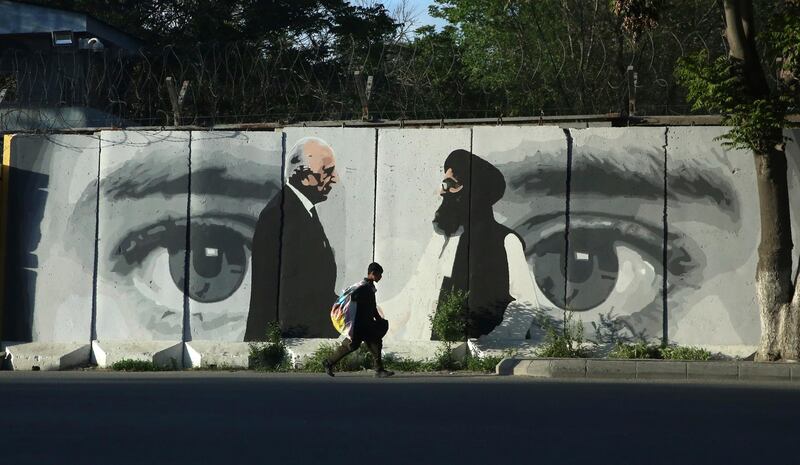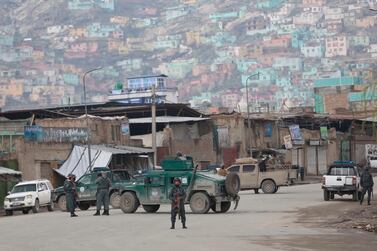Afghanistan's Taliban insurgents killed a provincial police chief and two others in a roadside bombing on Thursday despite calls from the government and United States for the insurgents to halt their attacks and allow a US-brokered peace process to move forward.
The blast took place late on Thursday in the south-eastern province of Khost, killing police chief Sayed Ahmad Babazai, his secretary and another officer, as well as wounding another person, provincial governor Halim Fidai said.
The militants claimed responsibility for the attack in a tweet by Taliban spokesman Zabihullah Mujahid.
The United States, which ousted the Taliban from power in 2001 and wants to withdraw its forces and broker peace talks with the Afghan government, condemned the attack through its embassy in Kabul.
The Taliban have stepped up attacks and inflicted heavy casualties on Afghan security forces after signing the peace deal with the US on February 29.
The bombing in Khost came as the US envoy for Afghanistan reconciliation Zalmay Khalilzad urged the militants to accept calls for a ceasefire, following a meeting with Taliban leaders in Doha.
Mr Khalilzad said he had lengthy overnight talks Abdul Ghani Baradar, a co-founder of the Taliban and the head of its political office based in the Qatari capital.
“We sought progress on a range of topics: a reduction in violence, humanitarian ceasefire as demanded by the international community to allow for better co-operation on managing Covid-19 pandemic in Afghanistan,” Mr Khalilzad tweeted on Thursday.
They also discussed “acceleration of prisoner releases by both sides, actions necessary to secure the freedom of US citizen Mark Frerichs, regional and international support for the peace process, and movement to intra-Afghan negotiations,” he said.
It was the first time a US official has commented publicly on the capture of Mr Frerichs, a contractor who was abducted by militants in late January. American officials believe the 57-year-old US Navy veteran was captured by members of the Haqqani network, a militant group aligned with the Taliban.
This was the second trip Mr Khalilzad has made during the coronavirus outbreak to salvage deadlocked negotiations over provisions in the February 29 accord.
The US-Taliban deal requires the Taliban to halt attacks on US and other foreign forces in Nato’s Resolute Support mission but not on the Afghan security forces they support. The Taliban also agreed to start peace talks with the Afghan government after a prisoner swap that was to have been completed by March 10.
The government was supposed to release 5,000 Taliban prisoners in exchange for 1,000 detainees held by the Taliban.
So far Kabul has released 933 Taliban fighters, a spokesman for the National Security Council said on Thursday, while Taliban spokesman Zabihullah Mujahid said the group had released 132 government detainees.
Mr Khalilzad said he would meet again with Taliban negotiators after a trip to India and Pakistan.







